Bee Trudgeon attended the ‘Disability Literati’ session at Verb Wellington, to learn more about how children and young people are portrayed in literature and a perceived historical tendency for disabled children to be treated as ‘life lessons, plucky objects of pity’ and ‘grotesque enemies’, and how some of today’s writers are smashing such tropes in favour of more realistic models.
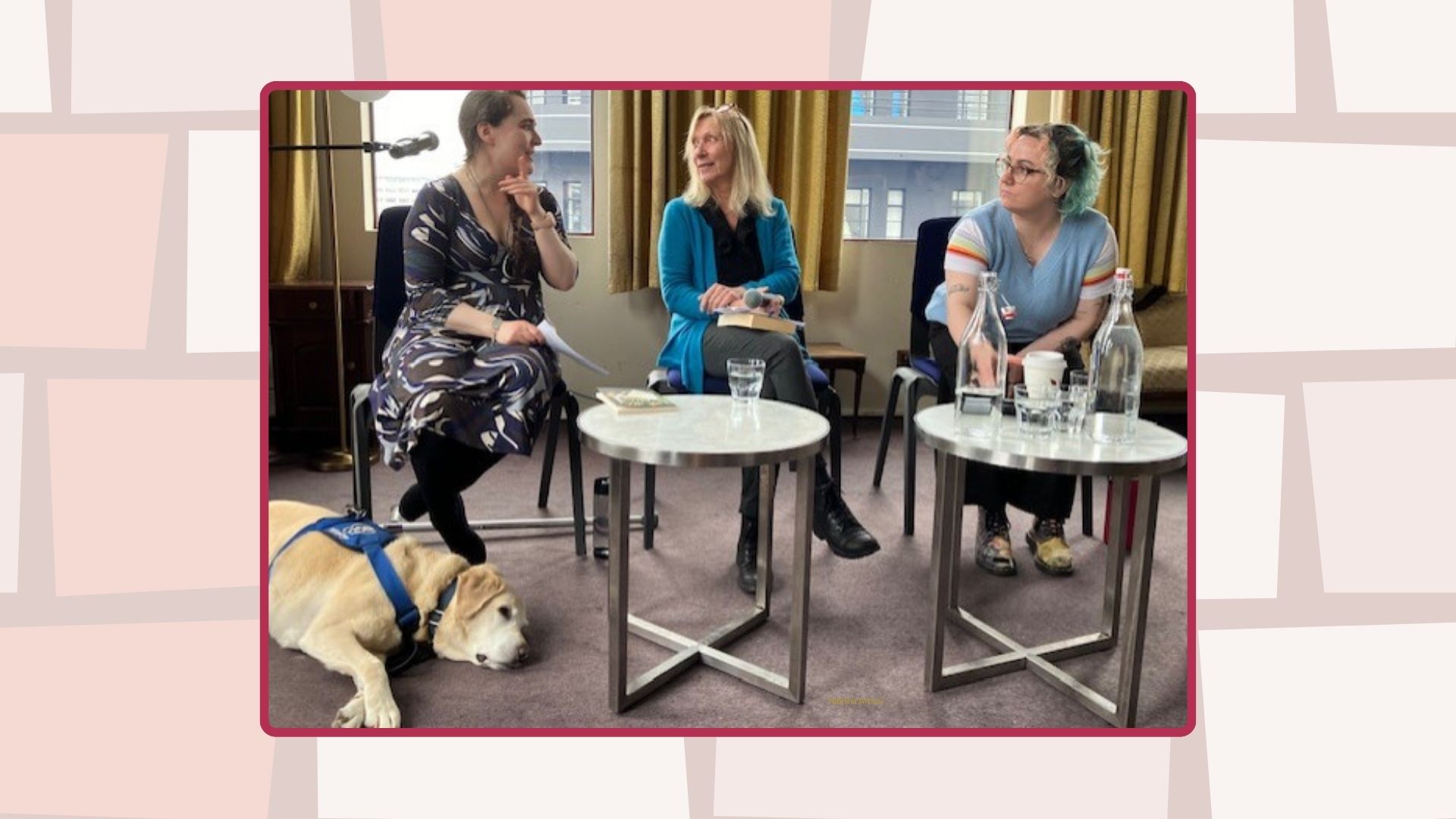
‘We’re here to talk about disability representation in books for children and young people—the good, the bad and the ugly,’ Elizabeth Heritage began the ‘Disability Literati—writing for children and young people’ event on the last morning of the 2024 Verb Readers & Writers Festival. The event’s blurb said children’s literature has a history of ‘presenting disabled kids as life lessons, plucky objects of pity, grotesque enemies, or simply absent’. Redressing the balance were Elizabeth and panellists Erin Donohue, Helen Vivienne Fletcher and Mandy Hager, who are part of the Crip the Lit collective. Crip the Lit was formed in 2016 by Trish Harris and Robyn Hunt as a way to promote the unique voices, perspectives and stories of Deaf and disabled writers.
Elizabeth Heritage is a book reviewer, publicist and arts journalist. Erin Donohue is a writer of young adult fiction, short fiction, poetry, and creative non-fiction, often channelled into her Substack, oldest, wisest self. Helen Vivienne Fletcher is a children’s and young adults’ author, playwright, spoken word poet, and creative writing teacher. Mandy Hager is a multi-award winning writer of young adult fiction, among a wider body of educational and adult work. In 2019, Mandy received the Margaret Mahy Medal for life-time achievement and a distinguished contribution to New Zealand’s literature for young people.
As Elizabeth opened the session she highlighted the potential polarity of viewpoints regarding writers being told they can either: write only what they know; or write whatever they want. ‘All three of our authors here have written disabled characters in their books really, really well. I would like to get into how they managed that; how you split between those two poles; how you seek out criticism; and also what feedback you’ve had.’
…the discourse is so angry that it’s actually had a chilling effect.
Mandy’s new novel, Gracehopper, is the story of two young people’s resilience. The main character’s mother has severe, earthquake-induced PTSD; and her best friend is dealing with the societal perceptions associated with being a little person. ‘It’s about overcoming hardship, figuring out who you are, and how to deal with being different in a society that makes value judgements about you,’ Mandy explained.
Mandy’s adherence to the discipline of rigorous research is always apparent in her highly relatable characters. The developmental stages of Gracehopper are a case in point. ‘I approached Al Gray, who’s a Little Person, and he was very generous in letting me ask incredibly invasive questions over quite a long period of time, coupled with doing a lot of reading, a lot of watching videos, a lot of exploring the issue. As I wrote the drafts, I would send them to him for his feedback, which was incredibly helpful, because I would sometimes make assumptions about his physical ability that we’d then have to adjust. Overall, it was a really positive experience. ‘To me, any writer that’s serious about their craft, no matter what character they’re writing, does this kind of research. So, it’s not just because this is a disabled character.
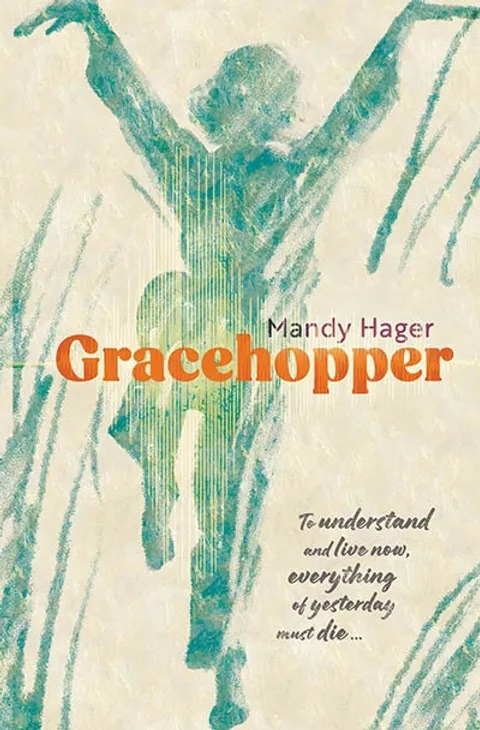
‘I think it’s important that we encourage people to write about diversity and not just say, this one is good, this one is bad, because I’ve never met a children’s writer who hadn’t wanted to do the very best job they could do. I think things have improved, but I also think, at the moment, the discourse is so angry that it’s actually had a chilling effect, which is against what we would like.’
It’s early days for wider audience feedback on Gracehopper, but it has been selected as a Storylines Notable Young Adult fiction title. Al told Mandy it was the first time he’d read a Little Person character who reflected his reality. She pointed out that such a reality can only ever be inherently personal. The fact it is impossible for writers to think they can – or be expected to – represent the entirety of any given issue within one character was raised often across the panel.
‘When you choose to write a character, whatever their circumstances, you’re writing one person’s experience,’ Mandy said. ‘It would be arrogant to think you could express the entire range of experiences of a group of people. My Little Person character is very much an individual with certain life experiences. You have to factor in so many things, you can only just hope to write one character well, and that may not represent every character.’
… you can only just hope to write one character well, and that may not represent every character.
Sometimes it is exchanges with readers who have connected with an author’s characters that reflect a job well done back at them. ‘At a festival, a young man came up to me and said, “Thank you for writing a male character with feelings,”’ Erin recalled. ‘That was amazing and upsetting—like, the bar is so low. I drew on that sensitivity from my own experience in writing Because Everything is Right but Everything is Wrong, but I think that made it different from other books I had read about young men and mental illness.
‘A lot of [young] people have said it was incredibly validating. I’ve also had a lot of parents read it. And some kids have come to me and said, “My dad gets it now… like, my dad never got it, but he read this and he has a much better understanding of depression and anxiety.”’
In the days surrounding Verb, I engaged in email exchanges with the authors regarding what it’s like to recognise parts of oneself when reading other people’s books.
That was amazing and upsetting—like, the bar is so low.
Helen said: ‘The most significant experience for me was not a disabled character but an overweight character, in The Cat Ate My Gymsuit, by Paula Danziger. I read this book when I was about 10 and really struggling with self-esteem and bullying around my weight. When my mum gave me the book, it was like being handed permission to exist. I saw a character who looked like me standing up for herself, and being the hero, and suddenly realised that my weight didn’t have to define my value.’
She also described recognising herself in a book about someone with obsessive-dominant obsessive-compulsive disorder, Every Last Word, by Tamara Ireland Stone. Although dissatisfied with the book’s conclusion, it still played an important role in her understanding of herself. ‘I was diagnosed with OCD as a teenager, but had never made the connection between some of my experiences and the diagnosis because I had only read stories about the more common types of OCD. It was such a relief.’
When my mum gave me the book, it was like being handed permission to exist.
Erin suggested a couple of metaphors to describe the recognition that turns a book into a mirror when it meets its reader. ‘What could be more powerful than coming up for air?,’ says Erin. ‘Or a cold glass of water when your mouth and throat are dry. Just that feeling of, Oh, thank God. You can feel your body soften around it. An almost primal relief. Oh, thank God. It wasn’t just me. I wasn’t making it up. It’s real. Someone else felt it too.’
She says this is more likely to happen to her within poetry than fiction: ‘Because I like to read poetry that uses visceral images to describe emotions, and that usually relates to my experience of them too (read: big and overwhelming).’
‘When I was a young adult reading young adult fiction, I was often frustrated at how mentally ill characters also had some magnificent plotline. When I was unwell, that was the plot. For years. I didn’t understand how these characters who were unwell or emotional in the ways I was were also able to go on adventures and fall in love and have fun.
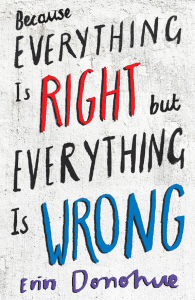
‘As an adult who has learnt a lot and grown a lot and has skills and tools and resources, I understand this idea. I can be chronically unwell and have an interesting, complicated life like everyone else. But not when I was critically unwell.’
She unpacked some of these ideas to write Because Everything is Right But Everything is Wrong, pouring them into a 17 year old boy named Caleb.
Mandy said: ‘If I recognise aspects of myself in a book I’m reading, while it can be consoling, I’m far more interested in discovering the inner lives of others whose experiences I have not shared, and contemplating how, despite our differences, there are far more things that bind us than set us apart.’
Back at the panel, Mandy expressed a desire for her work to stand on its own, independently of her personal circumstances. ‘I haven’t often talked about my own health stuff, because it’s not about me,’ she said. ‘I’ve never gone out and said I’m a disabled writer. My main goal for young people is to write about resilience, because I think young people’s lives are really complex. For me, I use my disability as a way of reaching in and finding empathy for situations, then pass that on.
I’ve never gone out and said I’m a disabled writer.
‘I have written quite a lot of disabled characters, and sometimes I’ve got it wrong, and I’ve had to learn from that, but for me it goes back to who you allow to write. If you’re a really serious writer, and you do your homework, and you approach your character with empathy, and compassion, then that’s the role of a writer more than flag flying.’
The panel became lively over discussion of the lack of financial rewards for creative writers. Helen was recently the recipient of a 2024 d/Deaf and/or Disabled Artist Development Residency at Toi Pōneke Arts Centre. With financial support and a mentor provided, she wrote two plays, working around 24 hours a week, in locations that suited her needs.
Erin works four days a week in an editing job, and tries to keep a fifth day for keeping the writing engine running, acknowledging that sometimes means maintaining it with rest. Potentially scant financial rewards aside, she said: ‘The process of writing something and articulating something is really powerful in its own right for me, to be able to look at something as external from me, that has put it into some sort of thing that has some shape or story is – for me – really validating. Then, when someone else reads it, and feels that, it’s worth it… sometimes.’
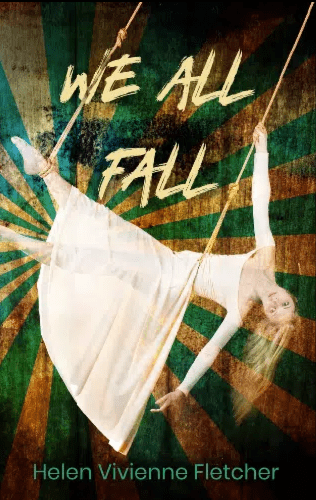
Mandy says she has never made any money out of her novels, but agrees there are benefits other than monetary. ‘It is the most amazing thing to develop this huge story in your head, and you’re putting it down into scribbles on a page, and somebody uploading those squiggles, and rearranging it and then you’re collaborating with their imagination as well, and maybe even affecting them in a way that might change the way they think moving forward. Even if that happens to one person, per significant piece of writing, to me, that’s a far greater reward than monetarily, but I can only say that thanks to the good will of my husband who has supported me to do that.’ It was sobering to hear Mandy say she is seriously considering giving up writing due to the ‘demoralising’ process of trying to earn a living doing it. Considering her enduring popularity with teen readers, it is almost impossible to think about NZ YA without her in it.
Dear Vincent is the book that has attracted the most response from young people writing to her, telling their stories, saying it is the book that shifted something in them, ‘and in some cases kept them alive,’ Mandy said. ‘But, actually, I’ve had that from every book I’ve written. I’ve had at least one person, often more, making those kinds of comments, and for me that’s always been my goal, that’s always been really rewarding. I wrote a book about date rape [Smashed], and I had a young woman who took it to her stepmother and said, “You have to read this. This is my life.”’
As the panel moved towards its conclusion, Erin took the opportunity to encapsulate the rewards of a successful writer/reader equation beautifully. ‘I read Dear Vincent as a young person, and understood the character, and we understood each other. And I also studied Mandy’s Smashed at school, which I also felt handled these really complex emotions and difficult situations really well.’
Elizabeth asked: ‘Is there anything you’d like to say to Mandy about that?’
Erin turned to Mandy and said, simply: ‘Thank you, Mandy.’
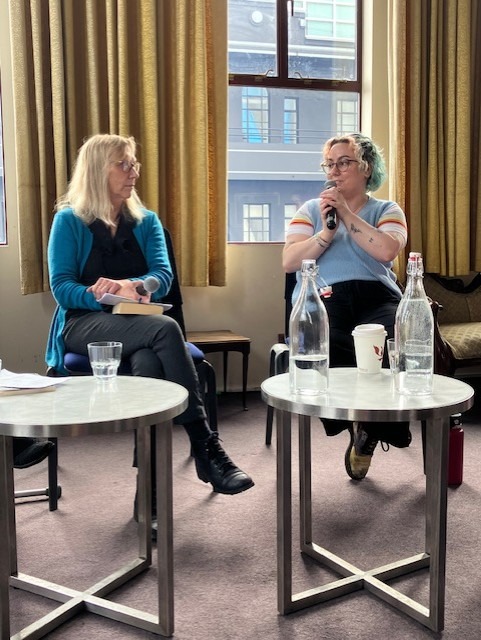
YA book recommendations from the Crip the Lit panel
Dear Vincent—Mandy Hager (Penguin Books New Zealand)
Gracehopper—by Mandy Hager (One Tree-house Ltd.)
The Nature of Ash—by Mandy Hager (Penguin Books New Zealand)
Ash Arising—by Mandy Hager (Penguin Books New Zealand)
Run for the Tree—by Mandy Hager (Wings Express Inc.)
Smashed—by Mandy Hager (Random House New Zealand Ltd.)
Because Everything is Right But Everything is Wrong—Erin Donohue (Escalator Press)
We All Fall—Helen Vivienne Fletcher (HVF Publishing)
Turtles All the Way Down—John Green (Dutton Books)
Will Grayson, Will Grayson—John Green and David Levithan (Dutton Books)
Two Boys Kissing—David Levithan (HarperCollins)
The Raging Quiet—Sherryl Jordan (Simon & Schuster)
Every Last Word—Tamara Ireland Stone (Magellan)
Give Me a Sign—Anna Sortino (GP Putnam’s Sons Books for Young Readers)
Insignificant Events in the Life of a Cactus—Dusti Bowling (Sterling Children’s Books)
Momentous Events in the Life of a Cactus—Dusti Bowling (Sterling Children’s Books)
And one excellent children’s picture book recommendation from Elizabeth:
What Happened to You?—James Catchpole, illustrated by Karen George (Little, Brown Books for Young Readers)
My only criticism of the event, as the list above shows, was that there was no one representing younger readers. For a wider age range of recommendations, check out Crip the Lit founder Robin Hunt’s 2018 book list illuminating experiences of disability in books for all ages and keep an eye out for Pearl D’Silva’s list of recommended picture books addressing disability on December 3 2024!
One thing the panel made clear was that, no matter what the abilities, challenges, or realities of a character may be, the standards for CYA literature remain as high as they are for audiences of any age, circumstances, or abilities.

Bee Trudgeon
Bee Trudgeon is a children’s librarian, writer, strummer, storyteller, dancer in the dark, film buff, perpetual student, and mother of two study buddies. Often spotted urban long-distance walking wearing headphones and a ukulele, she lives in a haunted house in Cannons Creek, and works in Porirua and wherever anyone will have her.



